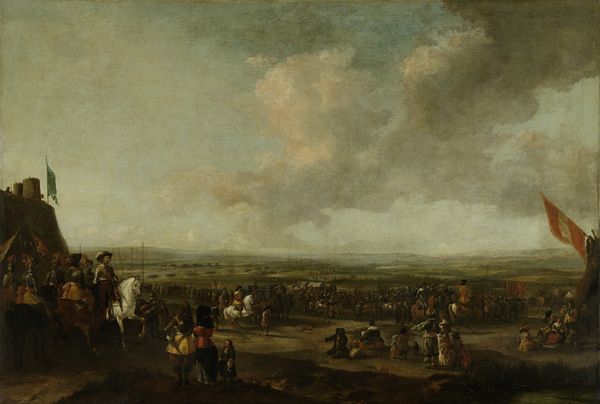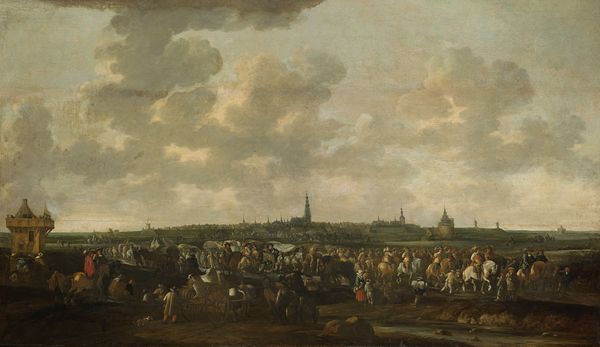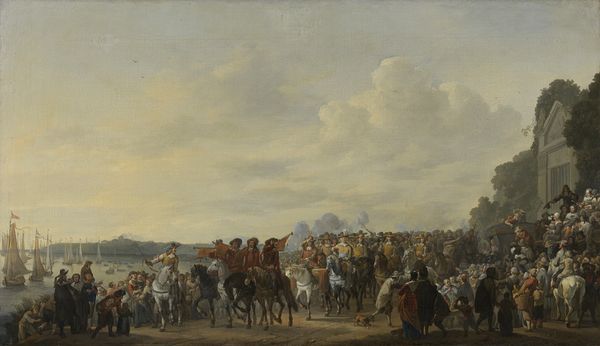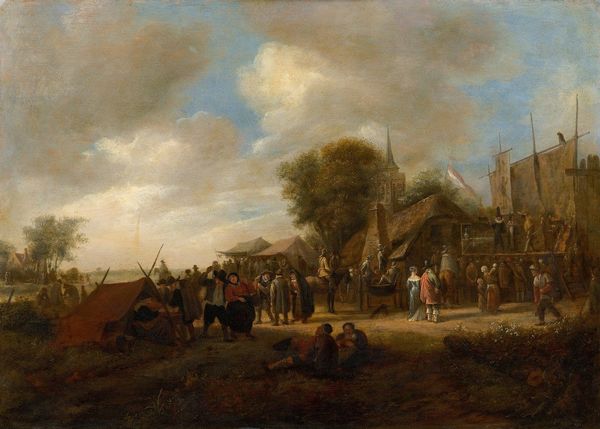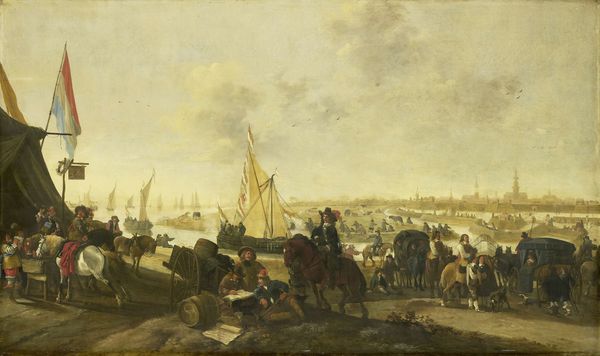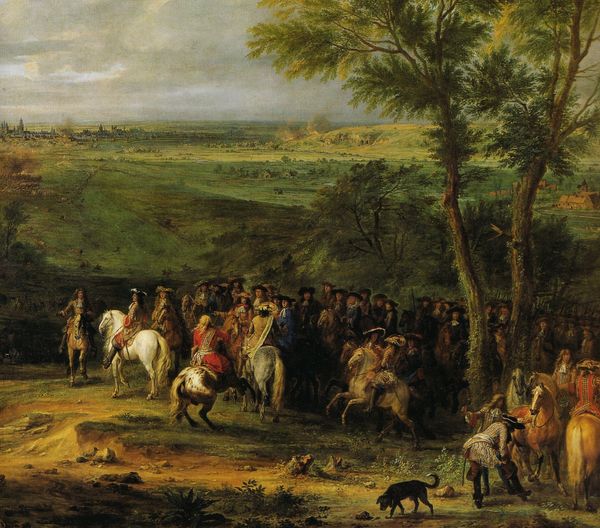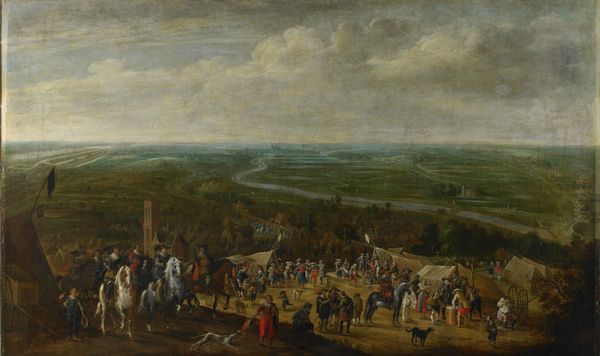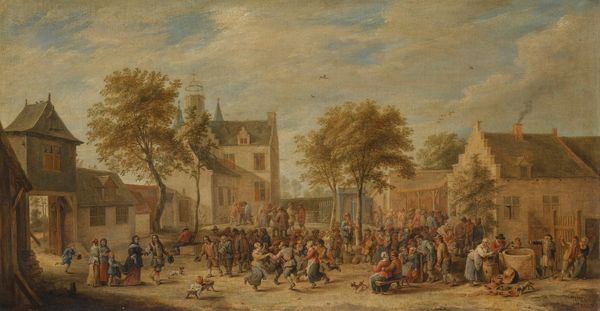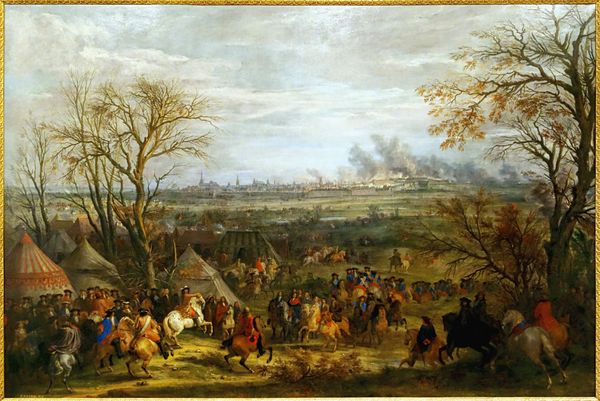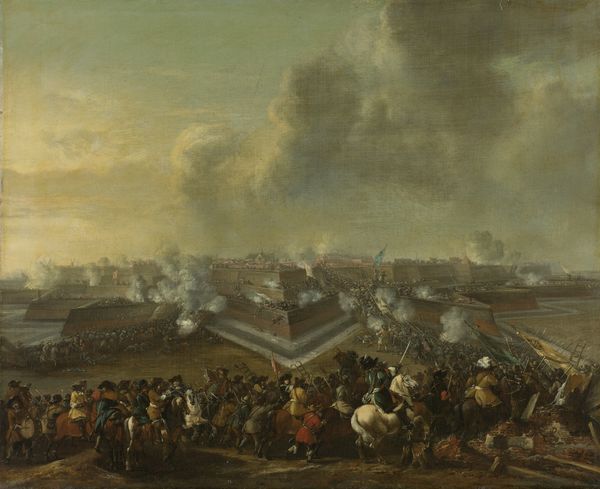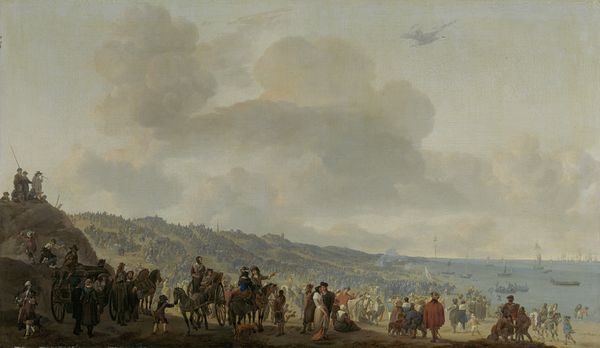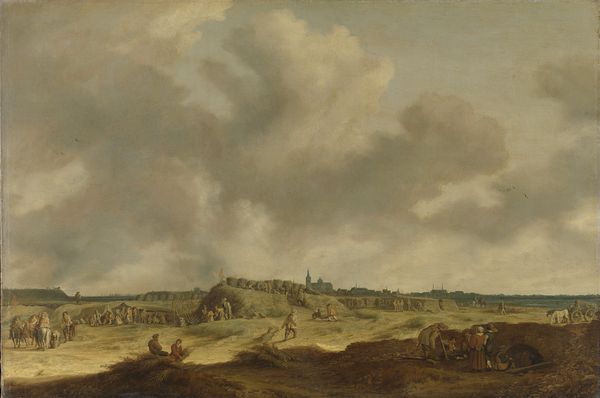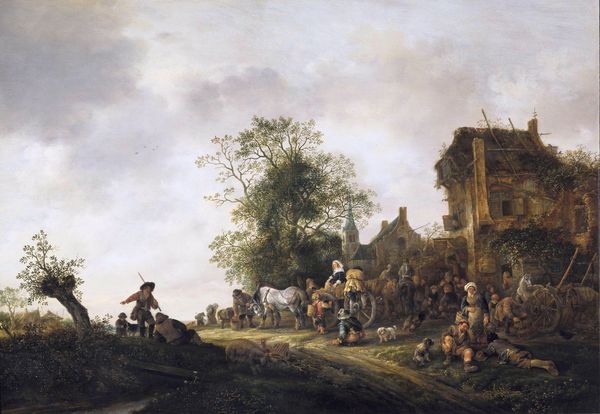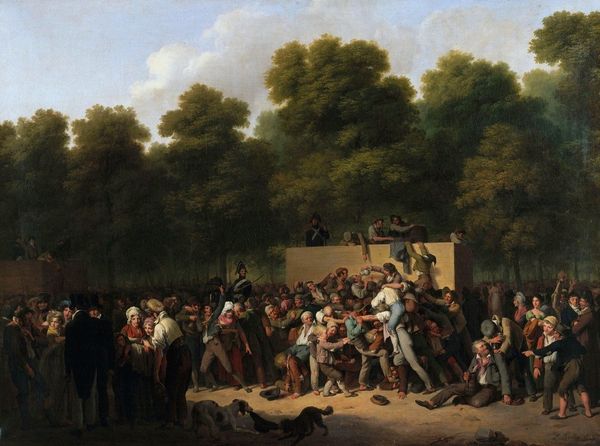
The Departure of Charles II of England from Scheveningen, June 2, 1660 1660 - 1683
0:00
0:00
painting, oil-paint
#
baroque
#
dutch-golden-age
#
painting
#
oil-paint
#
landscape
#
oil painting
#
group-portraits
#
cityscape
#
history-painting
Dimensions: height 52 cm, width 75 cm, depth 4.7 cm
Copyright: Rijks Museum: Open Domain
Editor: Here we have Hendrick de Meijer’s, "The Departure of Charles II of England from Scheveningen, June 2, 1660", created sometime between 1660 and 1683 using oil paint. There’s such a grand sense of movement and spectacle depicted here. What can you tell me about its historical context? Curator: Well, the Dutch Golden Age was a period defined by incredible prosperity and cultural flourishing, heavily reliant on maritime trade. But beyond the surface of wealth, you have complex power dynamics between the Dutch Republic and monarchies across Europe. Paintings like these were never politically neutral objects. Editor: How so? Curator: Consider this: Charles II’s departure from Scheveningen wasn’t just a sea voyage, but his restoration to the English throne, marking a pivotal shift in European power. This painting subtly promotes Dutch involvement, almost staging them as key actors. Notice how they visually dominate the composition. Whose perspective is being highlighted, do you think? Editor: I see, it's like the Dutch are presenting themselves as pivotal players by literally placing themselves in the foreground. Did paintings like this have any influence in solidifying political relationships between countries? Curator: Absolutely. Images become powerful tools of diplomacy. By controlling representation, the Dutch could project an image of strength, influence political opinions, and maybe even leverage favorable trade agreements. Think of it as early public relations through art. Editor: So much more to this than just a departure scene! I appreciate how you linked the visual elements to the power dynamics. Curator: And hopefully that prompts us to critically consider who creates history and whose voices gain prominence within historical narratives.
Comments
No comments
Be the first to comment and join the conversation on the ultimate creative platform.
